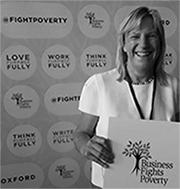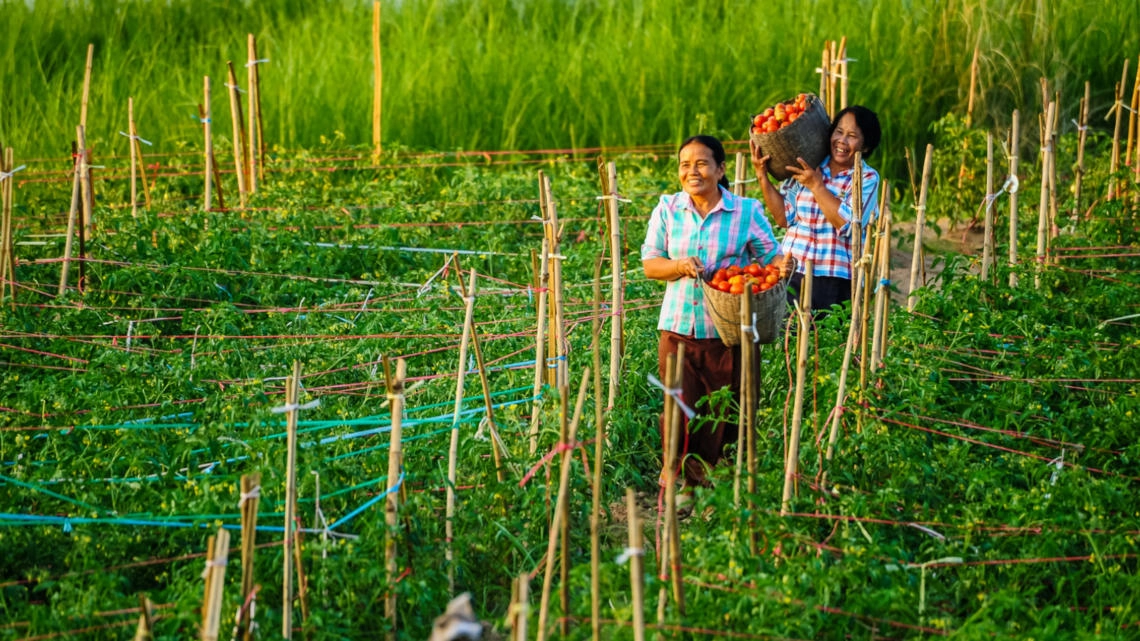This interview is the first in a deep-dive series from WBCSD’s Global Agribusiness Action on Equitable Livelihoods Project (GAA-EL) featuring perspectives from human rights experts in the NGO sector, government, WBCSD member companies, and more. The series aims to raise awareness about the challenges, opportunities and lessons learned across the sector. The GAA-EL project works with its members to improve human rights performance within agriculture supply chains, with for example the publication of an introductory toolkit, and the impending release of a train-the-trainer pack for internal company implementation.
As a part of the WBCSD Liaison Delegate Meeting on 20 April 2021, GAA-EL convened two virtual, interactive sessions focused on human rights in the agriculture sector, during which members representing the entire value chain discussed and provided feedback on the train-the-trainer materials, and shared their experiences building employee capacity to understand and tackle human rights challenges within their businesses.

Rachel Wilshaw, Workers’ Rights Senior Manager at Oxfam GB, kicked off these sessions, highlighting the importance of agribusiness action to reduce inequality and safeguard human rights, and the role of benchmarking in encouraging companies to improve.
WBCSD: What is your current role and experience working on human rights in the agriculture sector?
Wilshaw: I’ve worked for Oxfam for 30 years and on workers’ rights in global supply chains for 15 of those. Eight years ago, Oxfam started to benchmark companies in our Behind the Brands campaign, which targeted the top ten food and beverage companies globally. We developed a scorecard based on indicators of good practice across seven pillars: Transparency, Workers, Farmers, Women, Climate, Water and Land Rights. I developed the indicators of good practice on the ‘Workers’ pillar. We used the benchmarking idea again in our Behind the Barcodes campaign, targeting 16 powerful supermarkets in four countries, and looking at four pillars: Transparency, Workers, Farmers and Women. My role has been as global policy lead on workers’ rights, and in advocacy with companies.
WBCSD: How has COVID-19 shone a spotlight on the human rights agenda within the agriculture and food sector?
Wilshaw: The need for companies to demonstrate positive social impact has never been greater. The pandemic has set us back decades, exacerbating inequality. 720 million have experienced acute hunger, an increase of 82% from before the pandemic. Yet our report The Inequality Virus found that it took just nine months for the top 1,000 billionaires to get back to their pre-pandemic wealth. For the world’s poorest, recovery could take more than a decade. The gender pay gap has widened around the world. There are a range of factors; for example, more women are in precarious jobs. School and care systems have been disrupted, impacting women’s ability to earn an income. There are the underlying factors: women are less likely to have a bank account, and have less opportunity to access credit, training, or land ownership.
WBCSD: What is the role of benchmarking? What is driving this trend and for whom?
Wilshaw: Oxfam has assessed the top ten global food and beverage companies every year for three years. We only score company performance towards the seven pillars if the information is public, so the campaign drove much greater transparency. Alongside the scorecards, public campaigning pushed brands to make commitments to meaningful action. Behind-the-scenes advocacy directly with the companies helped them understand what Oxfam was looking for and why. This has been a pretty effective campaign model: it’s engaged the brands themselves using competitive dynamics, it’s engaged the public, and was very compelling for investors who are always hungry for performance data. Investors covering USD $1.4 trillion assets under management signed statements in support.
WBCSD: What are the major gaps and current outlook in terms of agribusiness action on human rights?
Wilshaw: Agribusinesses and consumer-facing brands are taking strides to improve their performance on social issues. Mars, Mondelez and Nestlé made commitments on gender inequality in cocoa; Coca-Cola and PepsiCo declared zero intolerance of land grabs across their supply chains; General Mills and Kellogg’s pledged to set science-based targets to tackle climate change. Unilever and Nestlé had the best scores across the scorecard as a whole.
Oxfam’s new report, Shining a Spotlight on food brands’ implementation of their sustainability commitments, evaluates companies’ progress against promises on land rights, climate change and women’s empowerment in Brazil, Ghana, Guatemala, India, and Malawi,– key food sourcing countries. While there has been action at the global level, progress stalls significantly in translating those approaches in countries and through supply chains.
An agribusiness’ policy commitment is only as good as its implementation is effective. What we’re looking for is a Human Rights Due Diligence program with a high level of transparency, prevention of human rights harms, and demonstrable positive social impact. Bringing suppliers on board as part of the solution is critical. Providing the right incentives, disclosing suppliers and supporting them to take up the agenda is key. You cannot create change at scale without them. Achieving resilient supply chains and positive social impact is not easy, but it is possible. If companies want transformational change like WBCSD’s Vision 2050 lays out, you are going to need powerful models of change. Business as usual is not going to be enough.
WBCSD news articles and insights may be republished in accordance with the Creative Commons Attribution-NonCommercial-NoDerivatives 4.0 International Public License, and in accordance with our Privacy Policy. All Content must be featured with due credits.

